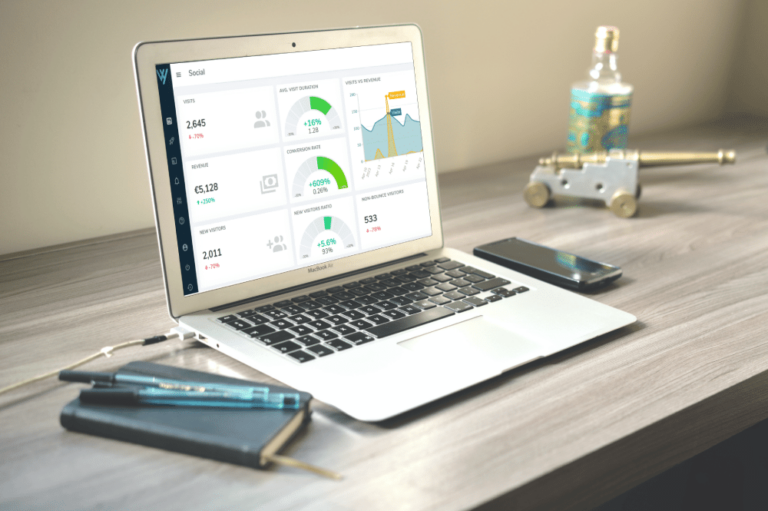With data privacy being on everyone’s mind lately, digital marketers have started to wonder how accurate their analytics platforms are going to be in a world where cookie consent banners, CMPs, and privacy regulations are ubiquitous. They are concerned about how these developments will affect their ability to collect and protect personal data, as well as run and evaluate the effectiveness of their marketing campaigns.
The Significance of Data Privacy for Marketers: Why Marketers Care about Data Privacy
In recent years, we’ve seen the appearance of many regulations limiting the range of personal data brands and marketing platforms can capture about their users. This process, championed by the EU and its General Data Privacy Regulation (GDPR), is slowly being joined by other regulations in the US (such as the California Consumer Privacy Act (CCPA), Colorado Privacy Act (CPA), Virginia Consumer Data Protection Act (CDPA), Connecticut Data Privacy Act (CTDPA), Utah Consumer Privacy Act (UCPA), and many more coming soon). But what do all of these regulations mean exactly?
The main thing that all these regulations have in common is that all websites serving content to people in those states must have a cookie consent banner on their landing pages. However, since the internet has no borders, this means that if you have a nationwide website (which is almost always the case), you have two options: either implement the cookie consent banner only in some specific states or implement it nationwide (99% of brands have chosen option 2 since option 1 is not really practical).
Implementing a Banner: Impact on Data Privacy and Digital Marketing
Once you’ve implemented a cookie consent banner on your website, every new user reaching your website will be prompted with a banner asking them to choose if they accept or decline the use of cookies on your website. If they decline, no marketing tag can fire, and it’s like the visit never happened for the analytics platforms the tags are associated with. Only if the user accepts cookies can marketing tags register the visit (and everything that happens during it).
This can have a significant impact on the way you judge the performance of your marketing campaigns. For instance, the day you implement the cookie consent banner, your analytics platform will see a sudden dip in traffic since you’re now only seeing visits from people who accepted cookies. On top of that, you’re now skewing the data from the moment it’s collected because people who accept cookies do not have the same behavior as people who don’t.
People who consent to cookies are usually individuals who are already engaged with your brand and are most likely to convert. Only considering those people in your analytics platform artificially inflates the conversion rate, leading you to make decisions based on biased data. Also, not all marketing channels are made equal when it comes to consent. Lower funnel channels (CRM, SEM, Affiliation) that target people who are already close to your brand have a higher consent rate than upper funnel channels (Display, Paid Social, etc.), as they target people less engaged with your brand. Because you are totally blind when people do not consent to cookies, lower funnel channels are overrepresented in your analytics platform, leading you to believe that your CRM is doing great when it’s being carried by paid social efforts.
Navigating Legal Requirements: Data Protection and Privacy Compliance
Capturing ALL interactions between a user and your brand has always been Wizaly’s mission statement, and in the face of all those regulations, we had to find a way to continue doing so. Introducing: Wizaly’s hybrid mode!
Ever since the early days of the GDPR, Wizaly has been working closely with CNIL (the organism enforcing the GDPR) to develop a way to continue capturing 100% of touchpoints while being compliant with privacy laws. This partnership has led to Wizaly being accredited by CNIL to deploy our hybrid mode!
Exploring Wizaly’s Hybrid Mode: How Data Privacy Works in the Digital Marketing Landscape
Wizaly’s tag is allowed to fire in two different ways: anonymously and individually. If fired anonymously, a visit is registered but cannot be associated with a physical user (staying compliant with privacy laws). If fired individually, the visit is registered with all relevant information about the user.
This allows for the following dynamic:
When a user reaches a landing page, the visit is registered by Wizaly. Then, depending on the user’s acceptance/rejection of cookies, the visit stays anonymous or becomes individualized.
But what does it change?
Wizaly now has 100% of the visits, some of them are anonymous, and some are individualized. We can then leverage that information to do many things like:
Calculate consent rates: If you have 100 visits coming from your paid social campaigns and 80 are individualized, then it’s pretty easy to say that those campaigns have an 80% consent rate.
Extrapolate conversion/revenue data to reflect 100% of touchpoints (this is the holy grail): Since attribution can only be done on individualized touchpoints, you might see in your performance dashboard that channel A has generated $100K (keep in mind this number reflects only people who have accepted cookies on most analytics platforms). However, using Wizaly’s hybrid mode, we can cross that information with the consent rate. Let’s say channel A has a 50% consent rate, we can extrapolate the overall revenue generated on both consented and non-consented visits, letting you know that channel A really generated $150K.
Next time you’re looking at your performance dashboard, ask yourself if those visits represent ALL visits or just the ones that have accepted cookies, and if the revenue you’re seeing is accurately attributed to the right channels or artificially skewed because of the way you’re collecting data in the first place!
Ready to unlock the full potential of data privacy in your digital marketing? Take control of your strategies and make informed decisions. Don’t miss out on the opportunity to revolutionize your marketing efforts. Book a demo with us today!



